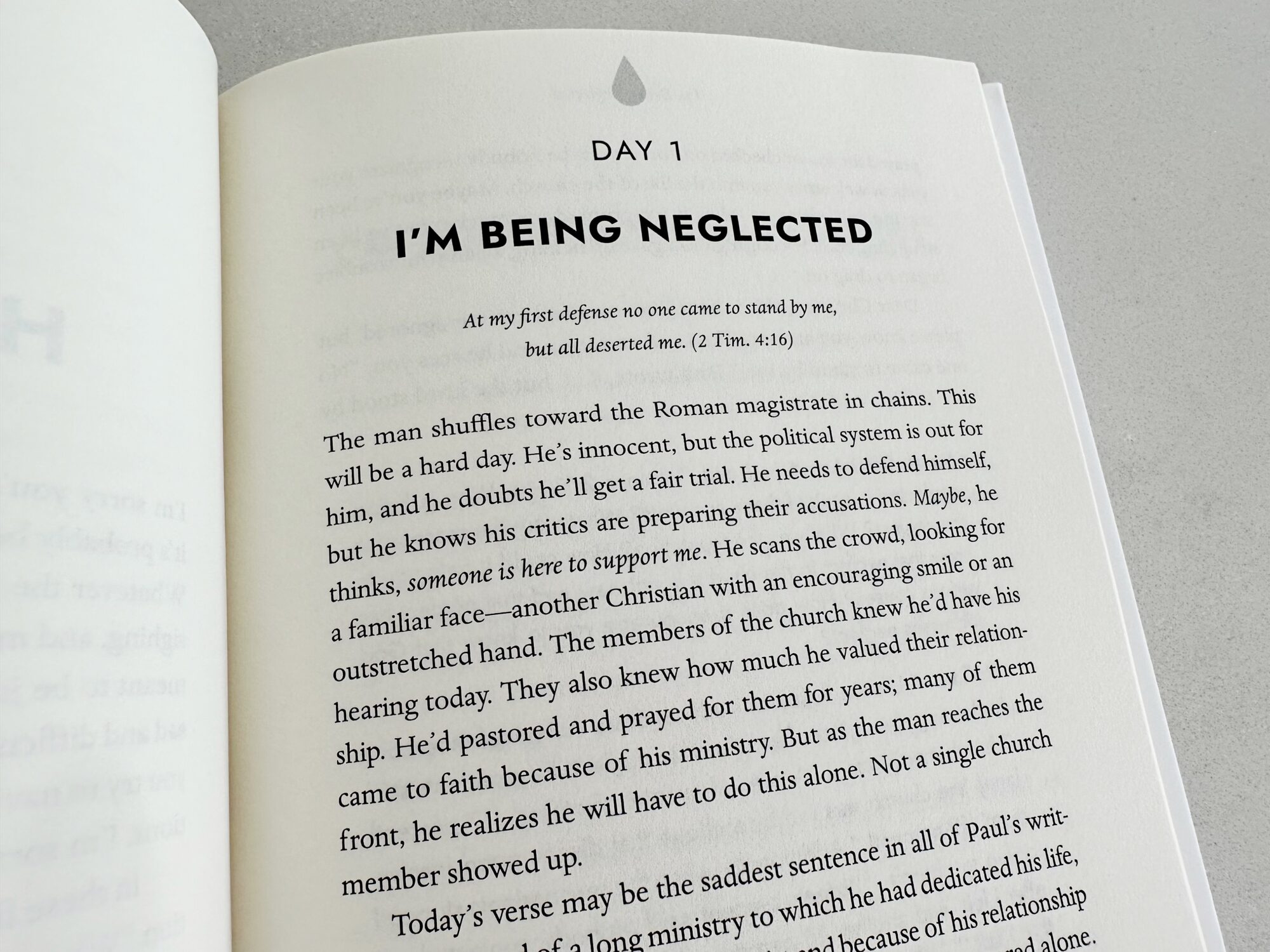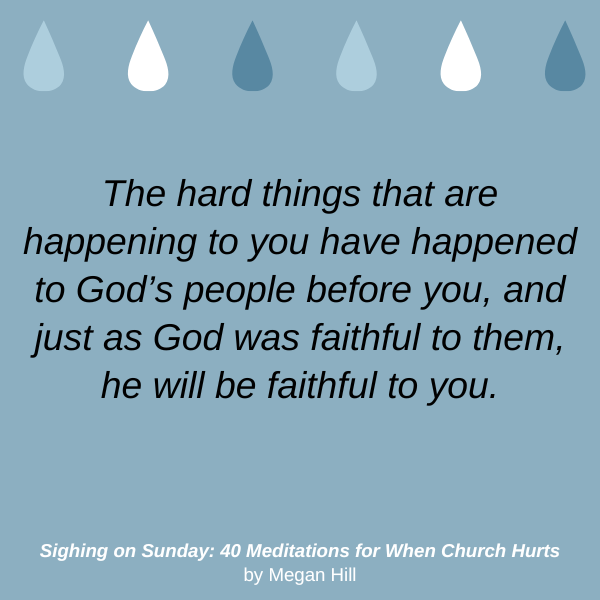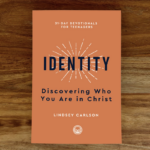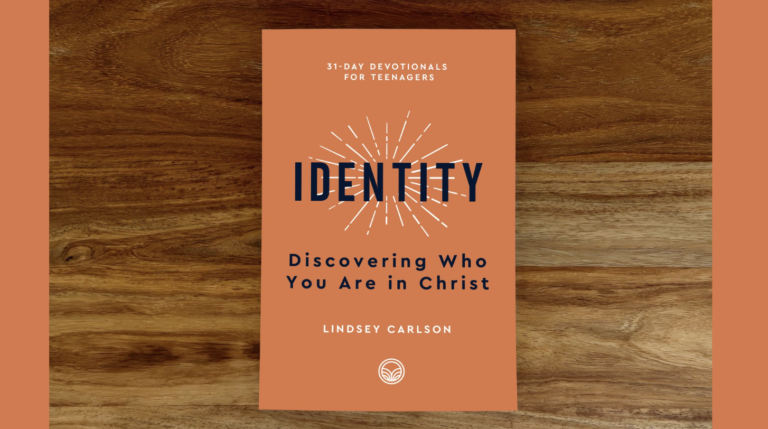I always enjoy getting to know more about an author before I sit down to open up his or her book. Today, I’m excited to interview my good friend and coworker, Megan Hill, about her new book, Sighing on Sunday: 40 Meditations for When Church Hurts. Megan’s thoughtful book offers hope to those grieving damaged relationships in their church community by considering examples from Scripture where God faithfully cared for people navigating similar hurts. Sighing on Sunday releases May 15, and you can pre-order a copy here!
Can you give us a quick update on your life? What has this season been like for you and your family?
 I continue to work as the managing editor here at The Gospel Coalition, and I live in western Massachusetts with my husband, who pastors a small PCA church, and our four kids. Our oldest is graduating from high school this year, so we are about to enter a new stage as a family. It’s definitely bittersweet!
I continue to work as the managing editor here at The Gospel Coalition, and I live in western Massachusetts with my husband, who pastors a small PCA church, and our four kids. Our oldest is graduating from high school this year, so we are about to enter a new stage as a family. It’s definitely bittersweet!
What led you to write Sighing on Sunday?
My husband has been called to pastor two churches that were hurting when we arrived. The circumstances in each congregation were slightly different, but, in both cases, the Lord put us in a place where we walked alongside many hurting people who were trying to process what had happened in their church and figure out how to move forward. This experience taught me so much and made me think that it would be good to have a resource for people who are struggling in church.
I decided to do a book of one-page meditations because I think it can be hard when you’re hurting to read a lot of content at once. But I’m hopeful that a book of meditations—each about a different passage of Scripture with a few questions and prayer prompts at the end—is a helpful format for struggling people. It’s the kind of book that someone can read a page today, and a page next week, and a page two weeks later and still get comfort and help from God’s Word.
What do you hope readers will take away from reading the book?
My prayer is that this is both a tender book and a hopeful book. First, I want readers to feel seen and cared for as they read—cared for by me, but especially by the Lord as he ministers his Word to them. There are few things more painful than hurt that happens in the church, and I hope this book feels tender. But, second, I pray that this is a hopeful book. I want readers to be able to understand their hurt and grieve it, but also to see a way forward. I think Scripture gives us practical help for next steps and promises for the future, and I tried to bring that to readers, too.

What advice would you give someone grieving changes in their church community?
I’m so sorry you’re experiencing this. Hurt in the church is very painful. I’d encourage you to take your sorrows to the Lord in prayer. Tell him your hurts and disappointments and struggles.
Then, I’d encourage you to open his Word and meditate on who he says he is. I think it’s easy to tell ourselves, “I should trust God in this situation,” without taking the time to really know who God is and why we should trust him. But things like God’s sovereignty, his power, his love, and his justice are the truths that will enable us to trust him in hard times. Meditate on those things.
Once you’ve done that, you are in a good place to start to think about what to do next. And, by ‘next’ I mean identifying just one good thing you can do this afternoon. God’s Word is filled with encouragements to next steps—pray, get godly counsel, watch out for Satan’s traps, and so on. These are often simple things, but we can have confidence that they are the right things.
Even if that’s all you do today—grieve, meditate on who God is, and look for his Word to tell you one thing to do next—you are on a good path.
In the book, you are honest about the reality that church is hard. Can you tell us a little more about that?
One of the most interesting things to me in writing this book was the fact that once I started looking in the Bible for instances of church hurt, I started noticing them everywhere. In both the Old and New Testaments, we have so many stories of people who experienced hardship in the community of believers. Hannah was mistreated by Eli the priest, David was sinned against by a fellow worshiper, Paul was neglected by the Christians in Rome. The people of God in the Bible were rejected, disappointed, ignored, and uncomfortable—all in the covenant community. So, in the book, I’m honest about the reality of church hurt because the Bible is honest about the reality of church hurt.
This also helps us to see that the Bible is a trustworthy source of help and hope in the midst of hurt. God’s Word doesn’t ignore that church hurt exists, so we can look for Scripture to tell us how to understand it and what to do about it.
Can you share a few of your favorite quotes from the book?

“Hurtful situations in the church can strip away many aspects of church life that we once enjoyed. Conflicts diminish our fellowship within the community. Sin erodes our trust in church leaders. Personal sorrow clouds our joy in worship. Disappointments dampen our hope for the church’s future. But these can’t touch the most precious reality of life in the church: nothing can remove Christ from among his people.”
“Each hurt and doubt and conflict in the church is part of Satan’s relentless war against the children of God (Rev. 12:17). But thanks be to God, Satan does not have the last word over us.”
Here are some endorsements:
“Though the church may hurt us, Christ and his Word will never fail us. There is healing on the other side of church hurt, and these devotions are a great place to start.” —Winfree Brisley
“Megan Hill has done us all a service by taking us back to the Scriptures and to the heart of Christ, offering words of wisdom and warning, as we seek healing in the body of Christ where we’ve experienced hurt.” —Trevin Wax
“Will encourage those who are weary from the deep hurts inflicted by their church family while providing helpful direction for navigating the complexities in the days ahead.” —Darby Strickland
What is something surprising that people might not know about you?
Writing books is the main way my household chores get done. As soon as I sit down to write, I get the urge to dust and clean the stove. It means I’m a very slow writer, but at least the baseboards get cleaned regularly.
Megan Hill is the managing editor for The Gospel Coalition. Her latest book is Sighing on Sunday: 40 Meditations for When Church Hurts. She is also the author of several other books. Megan lives in Massachusetts with her husband and four children, where they belong to West Springfield Covenant Community Church (PCA). You can connect with her on Instagram.

















